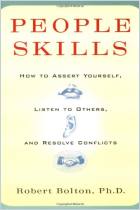Join getAbstract to access the summary!

Join getAbstract to access the summary!
Janie van Hool
The Listening Shift
Transform your organization by listening to your people and helping your people listen to you
Practical Inspiration Publishing, 2021
What's inside?
“Listening leaders” use the power of deep listening to bring out the best in themselves and others.
Recommendation
Leadership training emphasizes the importance of honing communication skills. But employees can’t perform at their best unless they feel that management receives and values their input, leadership coach Janie van Hool argues. When people feel heard and understood, collaboration and trust increase, which fosters stronger relationships and reduces fear of change and uncertainty. Her helpful guide offers practical tools for developing the skills and mindset of a “listening leader” – including self-awareness and empathy – and strategies for ensuring your words resonate with your intended audience.
Summary
About the Author
Communication coach and adviser Janie Van Hool is a former actor who now works with business leaders in a wide range of organizations. She also volunteers with the Samaritans, a UK nonprofit whose members offer an empathetic ear to people in distress.























Comment on this summary